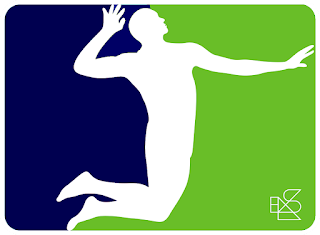What happens when players miss training?
I often see discussions in coaching groups about how to manage athletes who do not attend trainings. Usually the discussion is related to how long they should be banned from the court as punishment for not coming to training. Sometimes it is argued that it is not that they are being punished, it is that the players who WERE at training would effectively be punished by not getting to compete even though they had been, presumably, dedicated.
Usually I decide not to comment at all. I don't think I could write anything that would be acceptable, because I don't really understand the premise.
So, rather than providing advice to someone else, I'll just go through what I would do, and the rationale for it.
- If players come to practice that is great. If they don't that is a shame because they miss out. I do my best to create an environment that people want to come to because they think there is value
- If players miss practice the 'punishment' is that they miss out practice. It doesn't affect whether they play
- A lot of work is done to ensure everyone understands that we all have different priorities and demands on our time. As such we always work together for the best outcomes. There is a clear expectation that anyone involved with the team are compassionate and understand these competing demands
- I don't think my trainings are so great that a player will miss out on something so essential to playing that they will not know what to do in the next competition
- If it seems that more and more players are missing practice, I'll remind them it is important. But, I will also take a long hard look at what I'm doing and work out why they don't want to be there
- If someone has a problem with any of this I explain it to them
- I don't create 'policies' based on the simplest thing to explain to people who might complain
- If someone doesn't like it they are welcome to leave. No problem. No hard feelings
- Players learn at very very different rates and in different ways, so missing a practice is largely irrelevant. As an example, I recently heard a story of two identical twins. One of whom took a year off and the other didn't. When she returned she was better than the sibling who kept playing the whole time. So, if that can happen to identical twins, I'm not going to assume that my coaching is so great that any one who misses a single session is somehow going to fall behind everyone else and therefore doesn't deserve to be on the court
- I always play everyone. For as long as possible. I often start different players in different sets. Everyone knows that everyone plays
- I want the players to be at their best at the end of matches and the end of tournaments, not the beginning. So everyone plays and contributes and as a team we are healthier and fresher
- If someone misses training because of Covid quarantine, THEY ARE WELCOME BACK WITH OPEN ARMS (fist bumps). The whole team asks how they are and thanks them for ensuring the rest of the team is safe by reducing the chances of infecting them rather than coming to training
- The ONLY reason they would not immediately enjoy the benefits of the same playing time they had before is if there were risks due to their lack of activity over the past 2 weeks
- They are children, they will learn best in an environment of trust that they want to be in
- Oh, and I probably should say, my teams win a lot the players keep playing long after they have progressed past my team.
In the end, players are extrinsically motivated and intrinsically motivated. I'm not much of a 'ra ra' coach, so I try to create a learning environment they want to be in, to motivated them extrinsically. And then rely on their intrinsic motivation for the rest. I've found this works quite well for me, except when I get a bit grumpy.



Comments
Post a Comment